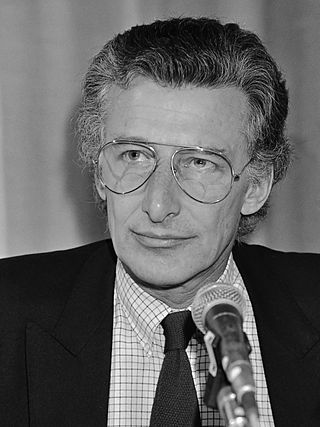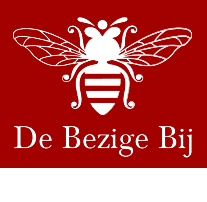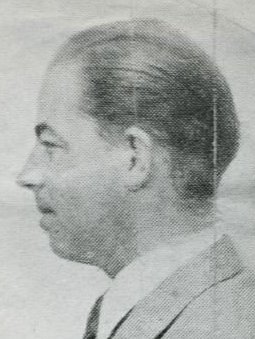
Reina Prinsen Geerligs (7 October 1922 - 24 November 1943) was a member of the Dutch Resistance during World War II. After the war the literary Reina Prinsen Geerligs Award was created in her memory.

Reina Prinsen Geerligs (7 October 1922 - 24 November 1943) was a member of the Dutch Resistance during World War II. After the war the literary Reina Prinsen Geerligs Award was created in her memory.
Reina Prinsen Geerligs was born in 1922 in Semarang, Dutch East Indies, the daughter of the chemist Johan Prinsen Geerligs [lower-alpha 1] and his wife Helen Carolina Zon. She had a brother who was two years younger. They moved to Amsterdam when she was still very young. [1]
In the Netherlands, Prinsen Geerligs was a member of the Youth Organisation for the Study of Nature, and she started writing poetry and prose. But when the war started, she mostly stopped writing and concentrated on her work with the resistance, initially mainly as a courier. Her house became the meeting place for resistance group CS-6, and Reina Prinsen Geerligs became involved with at least two assassination attempts. In 1943 she and Louis Boissevain tried to kill police officer Pieter Kaay, but stopped the attempt when they saw Kaay seated with a child in his lap. Another group executed him the next day. [1]
Prinsen Geerligs was arrested on 23 July 1943, and confessed to her work as a resistance fighter. In November 1943 she and some other members of the resistance group were transported to Sachsenhausen concentration camp, where they were executed the next day. [1]
Her parents only learned of her death in 1946. With the money they had set apart to finance her studies, they created a fund for a literary award in her honour, the Reina Prinsen Geerligs Award, given to a young writer between the ages of 20 and 25, and which was won by some of the most prominent Dutch writers at the start of their career, including Gerard Reve and Harry Mulisch. It was last awarded in 1979.

Harry Kurt Victor Mulisch was a Dutch writer. He wrote more than 80 novels, plays, essays, poems, and philosophical reflections. Mulisch's works have been translated into 38 languages so far.

Gerard Kornelis van het Reve was a Dutch writer. He started writing as Simon Gerard van het Reve and adopted the shorter Gerard Reve in 1973. Together with Willem Frederik Hermans and Harry Mulisch, he is considered one of the "Great Three" of Dutch post-war literature. His 1981 novel De vierde man was the basis for Paul Verhoeven's 1983 film.
Dutch language literature comprises all writings of literary merit written through the ages in the Dutch language, a language which currently has around 23 million native speakers. Dutch-language literature is the product of the Netherlands, Belgium, Suriname, the Netherlands Antilles and of formerly Dutch-speaking regions, such as French Flanders, South Africa, and Indonesia. The Dutch East Indies, as Indonesia was called under Dutch colonization, spawned a separate subsection in Dutch-language literature. Conversely, Dutch-language literature sometimes was and is produced by people originally from abroad who came to live in Dutch-speaking regions, such as Anne Frank and Kader Abdolah. In its earliest stages, Dutch-language literature is defined as those pieces of literary merit written in one of the Dutch dialects of the Low Countries. Before the 17th century, there was no unified standard language; the dialects that are considered Dutch evolved from Old Frankish. A separate Afrikaans literature started to emerge during the 19th century, and it shares the same literary roots as contemporary Dutch, as Afrikaans evolved from 17th-century Dutch. The term Dutch literature may either indicate in a narrow sense literature from the Netherlands, or alternatively Dutch-language literature.
De Grootste Nederlander was a public poll held in 2004 by the broadcasting company KRO of the Publieke Omroep. The series has the BBC's 100 Greatest Britons TV format. During the series, it included individual programmes on the top ten, with viewers having further opportunities to vote after each programme.
The Henneicke Column was a group of Dutch Nazi collaborators working in the investigative division of the Central Agency for Jewish Emigration in Amsterdam, during the Nazi Germany occupation of the Netherlands in World War II. Between March and October 1943 the group, led by former auto mechanic Wim Henneicke and Willem Briedé, was responsible for tracking down Jews in hiding and arresting them. The group arrested and delivered to the Nazi authorities 8,000-9,000 Jews. Most of them were deported to Westerbork concentration camp and later shipped to and murdered in Sobibor and other German extermination camps.

The P.C. Hooft Award, inaugurated in 1948, is a Dutch-language literary lifetime-achievement award named after 17th-century Dutch poet and playwright Pieter Corneliszoon Hooft. The award is made annually.
The Prijs der Nederlandse Letteren is awarded every three years to an author from the Netherlands, Belgium or, since 2005, Suriname writing in Dutch. It is considered the most prestigious literary award in the Dutch-speaking world, and the award is presented alternately by the reigning Dutch and Belgian monarchs.

Hendrik Jan Marsman, better known by his pen name, J. Bernlef, was a Dutch writer, poet, novelist and translator, much of whose work centres on mental perception of reality and its expression. He won numerous literary awards, including the Constantijn Huygens Prize in 1984 and the P. C. Hooft Award in 1994, both of which were for his work as a whole. His book Hersenschimmen features on the list of NRC's Best Dutch novels.
Zeemansvrouwen (1930) is a Dutch film directed by Henk Kleinmann, and was intended to be the first ever sound film produced in the Netherlands. Instead, it became the last official Dutch silent film and the last film that would appear between 1930 and 1934. There would be semi-amateur films made in this interim.

De Bezige Bij is one of the most important literary publishing companies in the Netherlands.

Jan Andries Blokker Sr. was a Dutch journalist, columnist, publicist, writer, and amateur historian. In The Netherlands, Blokker was best known for his columns in De Volkskrant, which he wrote between 1968 and 2006.

Hendrik Johannes Adrianus "Henk" Hofland was a Dutch journalist, commentator, essayist, and columnist. H.J.A. Hofland, as he is also commonly known, is often referred to as the éminence grise of Dutch journalism. In 1999 he was named Dutch "Journalist of the century" in a nationwide poll among his peers. He once described himself as belonging to the "anarcho-liberal community", though his political orientation is that of the secular center of society.
The Collectieve Propaganda van het Nederlandse Boek is a Dutch organization that includes representatives of bookstores and publishers, whose goal is to promote Dutch literature.

Dr. Gerrit Willem Kastein was a Dutch communist, neurologist and resistance fighter and leader during World War II.

The Erebegraafplaats Bloemendaal, or Dutch Honorary Cemetery Bloemendaal, is a World War II final resting place in Zuid-Kennemerland National Park in Bloemendaal, Netherlands. Located on the top of a dune, it can be reached by a small path from a parking lot located near the provincial route between Overveen center and Zandvoort.
Prinsen Geerligs is a Dutch surname and may refer to: